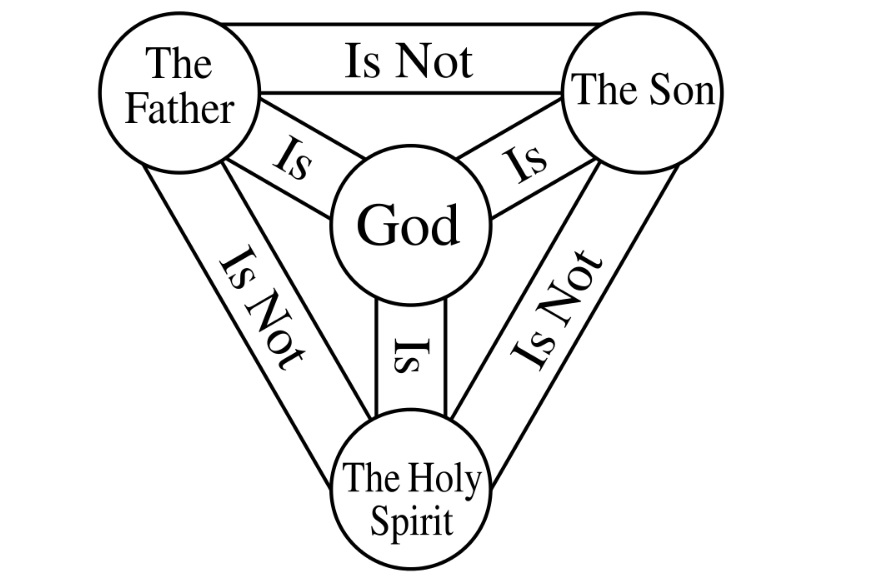No. There are zero verses.
The problem is that you are not actually engaging with the argument I have made. I asked you to do more study on it but you refused, so I provided the answer which you ignored. But here it is again:
There are at least two Hebrew words that mean "one,"
yachid and
echad.
Yachid means an "absolute unity," that is, if used of God, it would mean he is a single, solitary "unit," absolutely only one person, as we are. That would obviously mean the Trinity is false.
However,
yachid is
never used of God. Only
echad is used of God and that
can refer to,
although not necessarily, a compound unity—multiplicity within that one, such as “one nation under God;” that one nation consisting of millions of people.
Echad is what "one" in English means and is what is used in
Deut 6:4, for instance. It does leave the door open for the Trinity although it neither proves nor disproves it.
Hence why you
cannot provide one single verse that states God is ontologically an absolute unity, only one person. There is no verse in the Bible which states that God is an absolute unity.
And as I have previously stated, all those verses that you provided show, is that there is only one God; they prove monotheism and have nothing to do with the actual nature of God.
On the contrary, the doctrine of the Trinity takes monotheism into account, the verses about both the deity and humanity of Jesus into account, those verses which imply the "personhood" and deity of the Holy Spirit into account, and the numerous instances where the Father, the Son, and the Holy Spirit are kept distinct from each other. It also doesn't ignore language, the rules of grammar, or logic.
Those who deny the Trinity necessarily either deny those verses which speak of monotheism, those which speak of Jesus's deity, those which speak of his humanity, or those which speak of the distinctness between the Father, the Son, and the Holy Spirit.
Which is not relevant to whether or not God is triune. Let's look at Matt:
Mat 28:19 Go therefore and make disciples of all nations, baptizing them in the name of the Father and of the Son and of the Holy Spirit, (ESV)
The grammar is once again meaningful. Notice that “name” is singular but three persons are mentioned.
"To be baptized
upon the name is to be baptized on the confession of that which the name implies:
on the ground of the name; so that the name Jesus, as the contents of the faith and confession, is the ground upon which the becoming baptized rests.
In the name (ἐν) has reference to the
sphere within which alone true baptism is accomplished. The
name is not the mere
designation, a sense which would give to the baptismal formula merely the force of a
charm. The
name, as in the Lord's Prayer (“Hallowed be thy name”), is the expression of the sum total of the divine Being: not his
designation as God or Lord, but the formula in which all his attributes and characteristics are summed up. It is equivalent to
his person. The finite mind can deal with him only through his name; but his name is of no avail detached from his nature. When one is baptized into the name of the Trinity, he professes to acknowledge and appropriate God in all that he is and in all that he does for man. He recognizes and depends upon God the Father as his Creator and Preserver; receives Jesus Christ as his only Mediator and Redeemer, and his pattern of life; and confesses the Holy Spirit as his Sanctifier and Comforter." (M. R. Vincent,
Word Studies in the New Testament)
Notice this particular sentence: "
The name, as in the Lord's Prayer (“Hallowed be thy name”),
is the expression of the sum total of the divine Being: not his
designation as God or Lord, but the formula in which all his attributes and characteristics are summed up" (bold emphasis mine). So we see the "name," singular, expressing "the sum total of the divine Being" as the Father, the Son, and the Holy Spirit.
It doesn't need "that very specific information." You are presuming that God would have revealed himself in a certain way if it were true, when he is free to reveal himself in any way he chooses.
I have given much content that supports the doctrine of the Trinity, but you have thus far ignored most of it, so I am far from convinced that "that's all there is to it."
If you aren't getting notifications, you're certainly replying a fair bit to everyone else, which is what I find interesting. How is it that you seem to be getting their notifications and not mine? And why wouldn't you just quickly check to see if I have replied to you?








